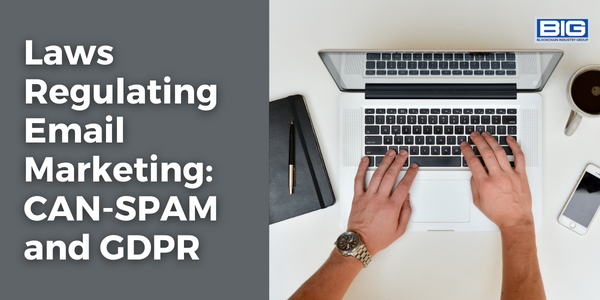
Email marketing is a popular and effective way for businesses to reach out to their customers and promote their products or services. However, it’s important for businesses to be aware of the laws and regulations governing email marketing to ensure that they are not engaging in any illegal or unethical practices.
One of the main laws governing email marketing is the CAN-SPAM Act, which stands for Controlling the Assault of Non-Solicited Pornography and Marketing Act. This law was enacted by the US government in 2003 and sets out a number of requirements that businesses must follow when sending commercial emails.
Here are some of the key provisions of the CAN-SPAM Act:
- Don’t use misleading or false information in your emails. This includes deceptive subject lines and misleading “From” and “To” fields.
- Provide a clear and easy way for recipients to opt-out of receiving future emails. This can be done by including an unsubscribe link in every email you send.
- Honor opt-out requests promptly. Once a recipient has opted out of receiving emails, you must stop sending them any further emails within 10 business days.
- Include your physical mailing address in every email you send. This can be your street address or a PO box.
- Identify your email as an advertisement. If your email contains an advertisement, you must clearly identify it as such.
In addition to the CAN-SPAM Act, there are also other laws and regulations that businesses must follow when engaging in email marketing. For example, in the European Union, the General Data Protection Regulation (GDPR) sets out strict rules for how businesses can collect and use personal data, including email addresses.
The General Data Protection Regulation (GDPR) is a regulation that was enacted by the European Union in 2018 to protect the privacy and personal data of EU citizens. The GDPR sets out strict rules for how businesses can collect, store, and use personal data, including email addresses, and it has a significant impact on how email marketing is conducted in the EU.
Under the GDPR, businesses must obtain explicit consent from individuals before sending them marketing emails. This means that individuals must opt-in to receive marketing emails, rather than being automatically added to an email list. The opt-in process must be clear and unambiguous, and individuals must be informed about the types of marketing messages they will receive.
In addition, the GDPR requires businesses to provide individuals with the right to access, correct, and delete their personal data. This means that individuals can request that their personal data, including their email address, be deleted from a business’s database. Businesses must also provide individuals with a way to easily unsubscribe from marketing emails.
Under the GDPR, businesses must also ensure that they have appropriate security measures in place to protect personal data from unauthorized access, theft, or loss. This includes implementing measures such as data encryption, access controls, and regular data backups.
Marketing and the Promise of Future Technology
—
Optimizing Your LinkedIn Profile for Opportunities
—
Retail Brand Preferences: Canada vs. US
Failure to comply with the GDPR can result in significant fines and legal action, so it’s important for businesses to ensure that they are in compliance with the regulation when conducting email marketing in the EU. To do so, businesses should work with reputable email marketing service providers that have implemented GDPR-compliant practices, and consult with legal professionals as needed to ensure that their email marketing efforts are in line with the regulation.
To ensure that you are in compliance with all applicable laws and regulations, it’s important to work with a reputable email marketing service provider and consult with legal professionals as needed. By following the rules and best practices of email marketing, you can help to ensure that your marketing efforts are effective, ethical, and legal.



